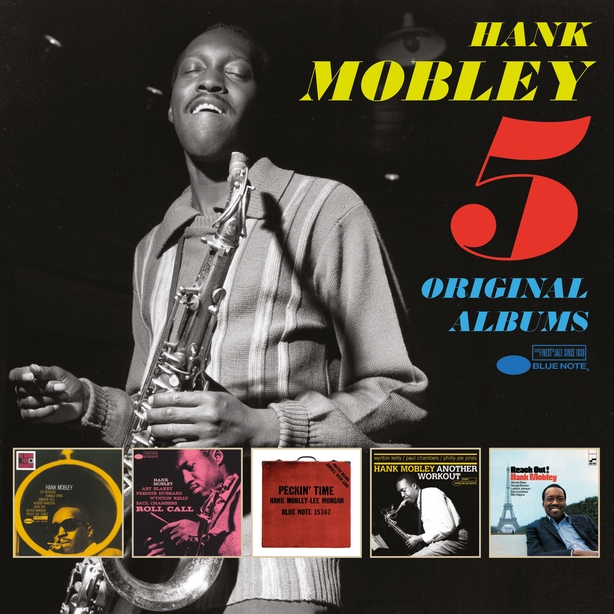A hard bop stalwart of the Blue Note label, tenor saxophonist Hank Mobley was somehow overlooked both before and after his death in 1986 due to a feeling abroad that his sober, unadorned swinging tenor was somehow not daring enough.
Critic Leonard Feather unkindly dubbed the Georgia-born musician the "middleweight champion of the tenor saxophone." Jazz buffs tended to look to John Coltrane or Sonny Rollins for bold innovation, and for suave moodiness they looked to Stan Getz or Lester Young. Critically, Mobley was caught somewhere in the middle, that "round" sound – his own description - modulated and held in check to make things subtle.
As a young man, playing with Horace Silver's Jazz Messengers, Mobley was a pioneer, digging out with his peers the cave of hard bop. He made his first solo recordings for Blue Note in the late 1950s, and was at his peak in the early the 1960s with records like Soul Station, A Caddy for Daddy and No Room for Squares, the latter released in 1963. Of the three just mentioned, only No Room for Squares features in this five-album anthology, its companions Peckin’ Time (1958), Roll Call (1960), Another Workout (1961) and Reach Out! (1968). All considerations about who was top of the heap somehow go out the window as you imbibe the supple yet buoyant music.

All of this studio gold was assembled with the help of talented accomplices such as Wynton Kelly, Herbie Hancock and Andrew Hill on piano, Lee Morgan, Donald Byrd and Freddie Hubbard on trumpet on individual album sessions, players like Philly Joe Jones and Art Blakey on drums and Paul Chambers, Butch Warren, Bob Cranshaw and Paul Ore on bass.
On the Reach Out! album, the title track is indeed a laid-back take of Holland-Dozier- Holland’s smash Tamla Motown hit Reach Out (I’ll be There), popularised by the Four Tops. It features George Benson on guitar but those linear, uncomplicated pop tunes don't always work. The piece never gets total lift-off, although Benson is perky throughout further tracks. Kurt Weill’s melody for Speak Low gets a reading on the Peckin’ Time album, a better tune than Reach Out! for jazz, moodier, darker. Appealing stuff.














